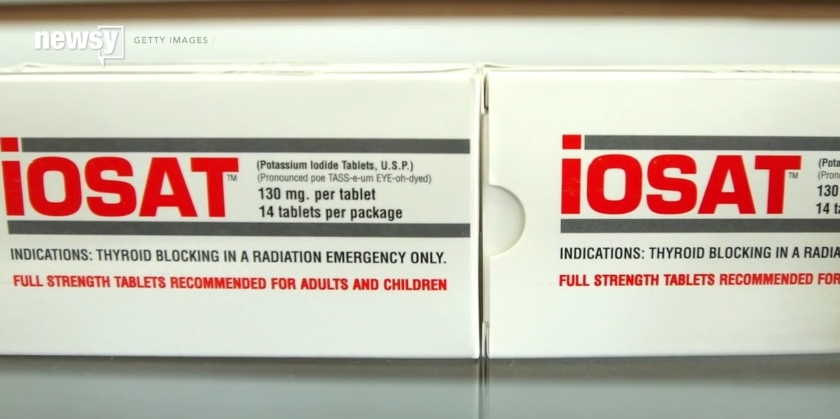Do you have a magnesium deficiency? Here are common signs and symptoms
03/08/2021 / By Divina Ramirez

Magnesium is an essential mineral that plays a key role in more than 300 chemical reactions in the human body. For instance, muscles need magnesium to properly contract. Nerves also use magnesium to send and receive signals. Magnesium keeps the heart beating steadily and strengthens immunity.
Unfortunately, despite the importance of magnesium to overall health, many people miss out on their daily recommended intake of magnesium due to an unhealthy diet. Having constantly high levels of stress, a gastrointestinal disease and alcohol dependence may also put an individual at a greater risk of magnesium deficiency and its health complications.
Signs of magnesium deficiency
Like most nutrient deficiencies, magnesium deficiency is characterized by certain symptoms. Spotting them early may help you minimize the risk of developing serious health issues related to a lack of magnesium.
Here are some early signs of magnesium deficiency:
- Muscle twitches
- Leg cramps
- Foot pain
- Nausea
- Fatigue
- Vomiting
- Loss of appetite
- Menstrual cramps
- Personality changes
- Irregular heartbeat
- Constipation
- Headaches
- Neck pain
- Weakness
Unlike other nutrient deficiencies, magnesium deficiency could be slightly difficult to detect during its early stages. That is because magnesium deficiency can affect virtually every organ system of the human body, said Sidney Baker, a family medicine practitioner from Yale University School of Medicine in Connecticut.
For example, because magnesium is involved in the regulation of airflow in and out of the lungs, a person who has inadequate or low levels of the mineral might experience a tightness in the chest or have difficulties taking deep breaths. Both of these symptoms are also present in hundreds of other conditions.
Because nerves use magnesium to send and receive signals, having low levels of the nutrient can have a marked effect on the central nervous system. Insomnia, anxiety, hyperactivity, restlessness, panic attacks and mood swings can all occur as a result of magnesium deficiency.
Nerves in the peripheral nervous system are not exempt from health issues linked to magnesium deficiency, said Baker. Magnesium deficiency symptoms involving the peripheral nervous system include numbness, tingling and other unusual vibratory sensations.
On the other hand, severe cases of magnesium deficiency correspond to equally severe symptoms. If someone has a severe case of magnesium deficiency, he or she may experience serious health issues, including:
- Extreme thirst
- Extreme hunger
- Sudden weight loss
- Increased need to urinate
- Recurring infections
- Unusual tiredness
- Impaired healing
- Dry, itchy skin
- Blurry vision
These conditions can also be observed in people with diabetes because low levels of magnesium are associated with insulin resistance. This condition occurs when cells stop responding to insulin, the hormone that controls blood sugar levels.
Low levels of magnesium are also common in children with autism spectrum disorders, which affect behavior and communication. However, further research is needed to determine if magnesium levels do, in fact, have a direct influence on an individual’s risk of developing developmental disabilities.
Foods rich in magnesium
The US Department of Health and Human Services recommends that adults should aim to take at least 310–420 milligrams (mg) of magnesium daily.
Listed below are the best food sources of magnesium:
- Pumpkin seeds, roasted – 156 mg per one-ounce serving
- Chia seeds – 111 mg per one-ounce serving
- Almonds, roasted – 80 mg per one-ounce serving
- Spinach, boiled – 78 mg per 1/2-cup serving
- Cashews, roasted – 74 mg per one-ounce serving
- Peanuts, roasted – 63 mg per 1/4-cup serving
- Black beans, cooked – 60 mg per 1/2-cup serving
- Edamame, shelled, cooked – 50 mg per 1/2-cup serving
- Potato, baked with skin – 43 mg per 3.5 ounces
- Brown rice, cooked – 42 per 1/2-cup serving
Magnesium is essential for many processes in the body. Having insufficient levels of magnesium may lead to numerous adverse health effects and conditions. To avoid magnesium deficiency and its health complications, eat foods rich in magnesium as part of a balanced diet. (Related: Magnesium deficiency? Try these 5 foods.)
Learn more about magnesium and other essential minerals at Nutrients.news.
Sources include:
Submit a correction >>
Tagged Under:
#nutrition, autism, health science, insulin resistance, Magnesium, magnesium deficiency, mental health, nervous system, nutrients, respiratory problems
This article may contain statements that reflect the opinion of the author
RECENT NEWS & ARTICLES
COPYRIGHT © 2017 SUPPLEMENTS REPORT





















